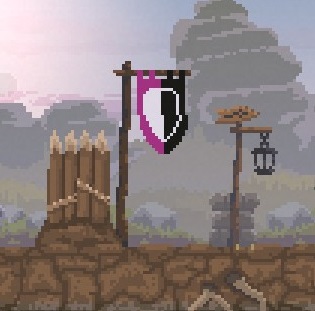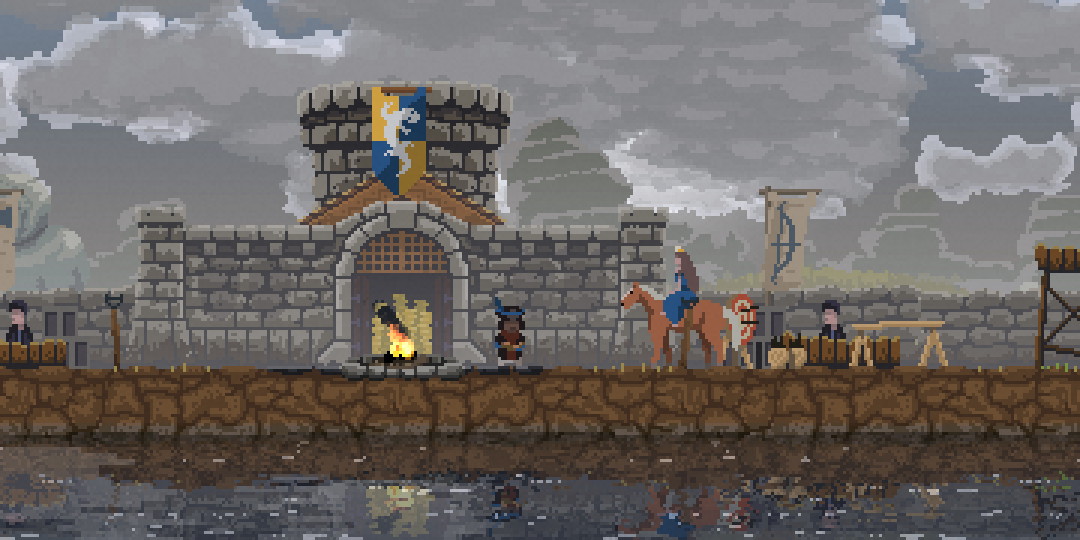
While in prison he painted a good portrait of the governor, but it had been a great grief to him to have his hair cut. Occasionally he seems to assume the appearance of a religious fanatic, and wanders about the hills preaching to the sheep but in some of his descents into the vale his appearance frightened some of the peaceful inhabitants, and the police having had their attention directed to him he recently underwent incarceration in the county gaol for disorderly conduct at Keswick. He occasionally favours Helvellyn with a visit and at times extends his peregrinations to Saddleback. The cave on Skiddaw is not, however, his only haunt.

He enjoys very good health, considering his mode of living, but occasionally has a touch of rheumatism.’ He has quite a passion for water-colour drawing, and has proved himself no mean artist.

Through the limited accommodation of his habitation he is obliged to lie in a circular position, much resembling a dog in a kennel. His only cooking apparatus is a small pan, in which he cooks messes of very questionable ingredients, boiling them by the aid of a lighted tallow. He makes almost daily visits to Keswick, where he purchases tea and sugar, mixing and eating them dry. He gives the name of Smith, and judging by his language, belongs to Scotland, but when questioned on the subject gives an evasive answer. His hair is thrown over his shoulders and hangs far down his back, and forms the only protection to the head his clothes seem to have been the height of fashion 20 years ago, and are quite threadbare he wears no shoes, and goes on his peregrinations in stockinged feet. His appearance is ludicrous in the extreme. He has resided there nearly three years, and has stood alike the scorching rays of summer and the snow and storms of winter, although it has been seen nearly half filled with water. The roof, or lid, is portable, and made of reeds brought from the edge of the lake, and curiously wrought together in the form of an umbrella, so that when he retires to rest he shuts it down from the inside. ‘A visit to the place showed us a circular hole, situated about 300 yards up the breast of the mountain, and partly on the edge of a cliff it is about three foot in depth, and four foot in diameter, which, after assiduous labour, he has contrived to line with moss, &c. A tourist who had visited the man, thus describes the strange “cave” and the personal appearance and habits of the recluse. It was found that the eccentric being had been searching for a cave in which he might take up his abode but not having met with much success, he had made himself a “nest” on the breast of the mountain, and there he had taken up his abode for the last three years. In the course of a few days, however, the man left his lodgings and disappeared, and the mystery that had surrounded his frequent expeditions up the mountain was solved. During that period, he made frequent excursions up Skiddaw, always returning with his clothes covered with mud, and his mysterious wanderings excited considerable attention at the time, various stories being set afloat of his search for precious metals or a hidden treasure.

It appears that about three years ago an eccentric-looking man, of tall and slender build, a pale complexion, and speaking with a Scotch accent, paid a visit to Keswick, where he occupied lodgings for a week. “The vagaries of a man who has turned recluse and taken up his abode in a cave on Skiddaw are exciting the attention of tourists in the Cumberland Lake District this season. Reproduced from an article that first appeared in the Edinburgh Courant: Skiddaw from Grisedale Pike The Westmorland Gazette and Kendal Advertiser-9th June 1866 I’ve collated the reports-I’ll simply let them speak for themselves.
Kingdom new lands hermits archive#
A trawl through an archive of 19 th century newspapers reveals the poignant story of a gifted man, suffering with mental health issues and seeking solace among the summits and woodlands of Lakeland. He lived wild on the fell and became known as the Skiddaw Hermit. Most came back down again and went home, but the mountain took one troubled soul to its breast. The Victorian era opened the floodgates for Lakeland tourism, and a fair few of those visitors made their way up Skiddaw.


 0 kommentar(er)
0 kommentar(er)
